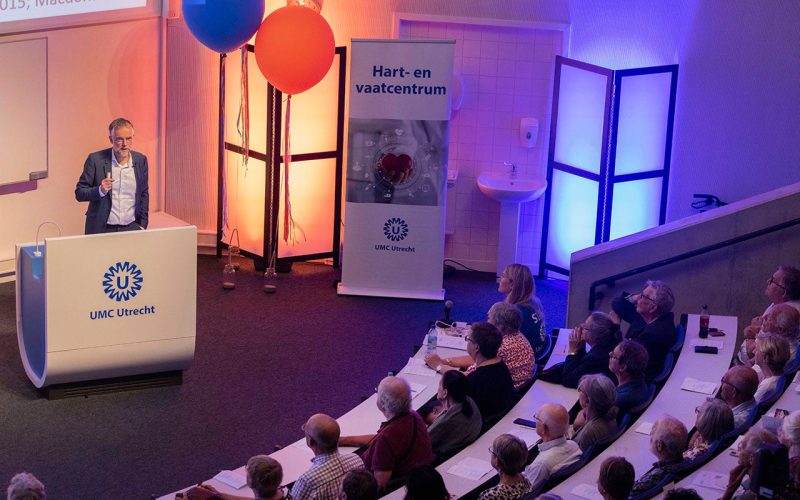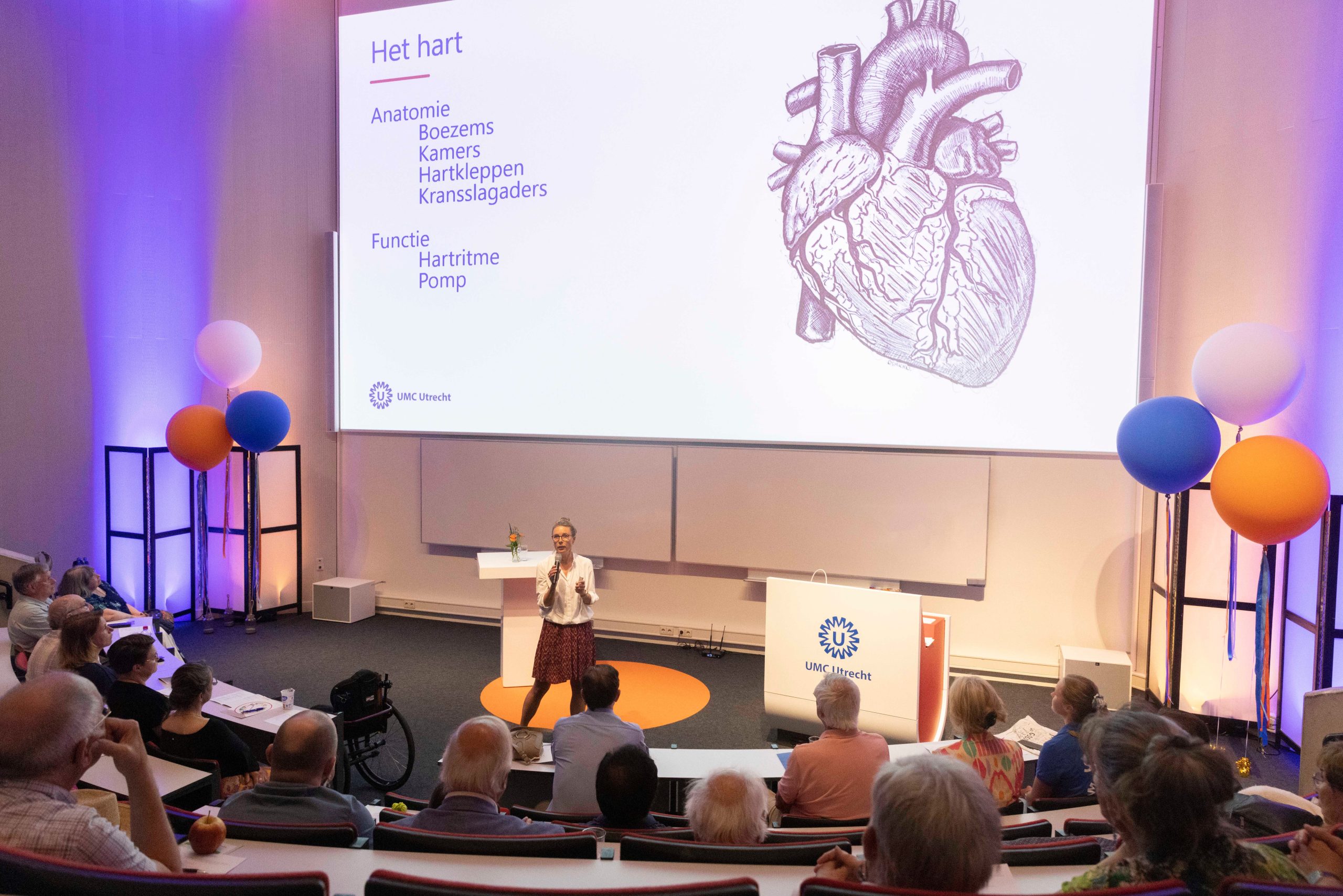More than 15,000 people participate in it. For more than 25 years, they have been regularly filling out questionnaires and giving up medical data. This makes the UCC-SMART study one of Europe’s largest scientific studies of cardiovascular disease. This week in two packed lecture halls at UMC Utrecht, 400 participants were updated by researchers on what happened to their 25 years of collected research data.
In 2021, the UCC-SMART study marked its 25th anniversary; in 2022, the program had more than 15,000 participants. By updating these people with (risk of) cardiovascular disease on what is happening with their research data, the researchers want to show how patients’ participation in the program actually helps improve the care of current and future generations. The special UCC-SMART patient day at UMC Utrecht was therefore well-attended.
Approximately 600 people a year start the UCC-SMART pathway. What is special about UCC-SMART is that many different people participate. “People with a heart problem, high blood pressure, diabetes, pregnancy complications, vascular problems. This gives us new insights into cardiovascular disease and clinical practice every day,” says internist and professor of vascular medicine Frank Visseren of UMC Utrecht. The program is made possible by multidisciplinary and international collaborations.
The researchers use these new insights from UCC-SMART to develop new treatment methods. For example, the U-Prevent website came about thanks to UCC-SMART. Based on the research data collected, this online program calculates the lifetime cardiovascular disease risk and the number of disease-free years added if you stop smoking, for example, and take cholesterol or blood pressure medications. Thus, U-Prevent recommends customized medications and enables patient and physician to make informed decisions together.
Also developed is the UCC-SMART risk score, which allows researchers to predict the risk of developing the next vascular problem. Again, this could never have been done without the availability of big data from the UCC-SMART study. “Very important,” according to Frank, “because if you know the risk, you can also intervene and really do something about it.” The risk score has become part of the European cardiovascular disease prevention guideline.
And there are many more scientific developments and improvements in care that have been possible thanks to patient participation.

